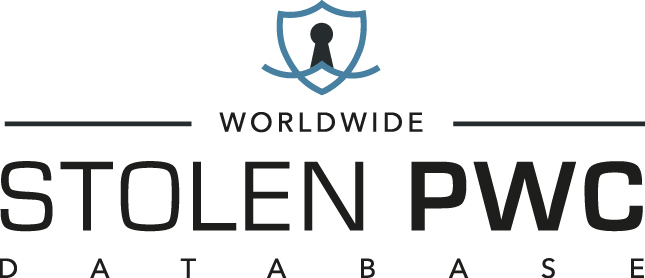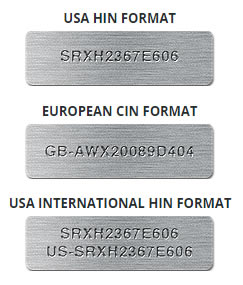5 critical steps to take, before you buy a used PWC

A service launched in Europe several years ago has announced its expansion into a worldwide, dedicated stolen PWC database. The Worldwide Stolen PWC Database has the support and data from many insurance providers, underwriters, trade associations and a pending strategic partnership with the NICB (National Insurance Crime Bureau) to launch its global service and now includes Australia in its data records.
Anyone can register a stolen PWC with the Stolen PWC Database absolutely free. You just need to have reported it stolen to the authorities, then you can register it directly on our site at www.stolenpwcdatabase.com. So anyone who has had a pwc stolen in the past should add it to the database via website right away.
For buyers, there is a checking fee for using the search service. For Australia it is charged in AUD and is $19.95.
Check out the site there is a lot of good information including the 5 important checks that should be included when looking at purchasing a used personal watercraft, as below:
——————————————————————————————————-
Buying a used PWC always comes with risks. These can be mechanical or ownership title (stolen) risks. But by following a few common sense measures and stepping back from the situation to think it through, can and does save many people thousands each year.
 1. The HIN/CIN, a unique identity
1. The HIN/CIN, a unique identity
Unfortunately, there is no global registration process or body that controls, regulates or maintains the registration of PWC. Whilst every PWC has a HIN (Hull Identification number) or CIN (Craft Identification Number) and engine number, these are not universally required by law to be recorded against an owner or keeper. As a result, many countries have no PWC registration process or controls at all.
In the US, most states have some form of legal registration and/or title process for PWC, as does Australia, but the level of implementation and enforcement varies considerably. As a result of each country’s differing approach to the registration of PWC, it provides no cohesive global protection from the movement of stolen PWCwithin and between countries.
As a consequene, a large number of stolen PWC have either no tampering of the HIN/CIN system, or no visible evidence of tampering whatsoever. So depending on where the stolen PWC originated from and where its destined to be sold on, will change the action required by the thief. Therefore, caution must be exercised.
Start by taking the time to inspect the HIN/CIN plate. Has it been tampered with? Does it look much newer or older than the rest of the PWC? Ask to see any supporting documents where the HIN/CIN is quoted (eg. insurance, registration papers, invoices for its purchase or repair etc.). Take a note of the HIN/CIN at this point. If you also have the opportunity to obtain the engine’s serial number, this will be useful if you choose to make a check of the PWC against our stolen PWC database.
2. Confirm the Seller’s identity
Whilst it may sound obvious, be sure you know who you’re buying the PWC from. Start with a home visit to initially view the PWC. It’s easy for a thief to convince you to meet them at the waterside, after all, they know you’re probably going to be keen to test ride your potential new PWC. Don’t complete any purchase until after you’ve made a home address visit. Our experiences tells us that genuine sellers will understand and be fully compliant with your requests, after all they are the ones trying to make the sale.
3. Use an independent HIN/CIN checking service
There are a number of generic boat and marine history reporting sites that contain information about many different types of boats and marine vessels. You can of course check a PWC HIN/CIN with them, but from our own research and experience, the accuracy and volume of current live data varies considerably.
This are a number of reasons for this, firstly there is no global registration requirement for PWC. As such, very little history follows a PWC around, unlike with a regular boat. Another reason is that many PWC that are stolen are not insured, so the information of their theft does not get circulated like it does with an insured PWC. Owners of uninsured PWC therefore have to try add their stolen PWC to many individual generic databases, in the hope of getting their stolen PWC visible. As a consequence of all of this, the checking of a PWC HIN/CIN against a generic boat and marine database by potential buyers, often delivers disappointing and not intentionally, misleading results.
Here at the Worldwide Stolen PWC Database, we pride ourselves on being theONLY worldwide, dedicated stolen PWC database. By focusing all of our attention on just stolen PWC and their trailers, we can ensure the very best quality and accuracy of the data we carry. We’re fast to act too. In many cases a PWC can appear on our database within minutes of it being discovered stolen. As soon as we are made aware of a stolen PWC or trailer, it becomes live in our system within minutes, 24hrs/365 days, worldwide.
We work in partnership with many agencies, authorities and insurers sharing intelligence on stolen PWC. Our dedicated PWC focus provides victims of PWC theft a specialist network in which to add their own stolen PWC. This single point of registration places their stolen PWC in prime view of all potential PWC buyers within minutes.
Our ongoing data maintenance program also means that we are continually checking and re-checking the status of all PWC and trailers on our database, to provide a robust and reliable service to the public and law/marine authorities.
4. Commit pen to paper
If after these basic checks you decide to continue with the purchase, then make sure to construct a simple contract of sale agreement between the two of you. It does not need to be a 20 page contract of legal terms and phrases, just simply state the straightforward facts of the sale. Who you both are, where you both live, what is being sold and that it belongs to the Seller or that they have the full permission and right to sell the PWC etc.
With this signed and dated by both parties you will have set in place a more formal arrangement and secured another level of protection for yourself. Don’t forget, validate the seller’s ID, by means of a passport, driving licence or national identity card etc.
5. Finally, common sense
Whilst we are able to quickly and accurately inform you if your intended PWC purchase is registered on our database, it should only be used as another tool in your buying arsenal. Remember, unfortunately not everyone tells us straight away when their PWC has been stolen, so we can’t pass on the warning. If the deal you’re being offered is ‘too good to be true’ it probably is.
Check the service and repair paperwork, does it look legitimate? Could you call the supplying dealer or service agent? If possible, contact the previous owner and ask how and when they sold the PWC.
Remember, genuine sellers expect buyers to be sceptical and cautious of high value purchases that may have been stolen. Therefore they are much more likely to be comfortable with your questions, than someone who has something to hide. Feel the situation, are your requests making the seller uneasy. Listen to your sixth sense and act accordingly. There are plenty of great used PWC out there, why risk your hard earned cash if things don’t feel 100% right.
Article by the Worldwide Stolen PWC Database
